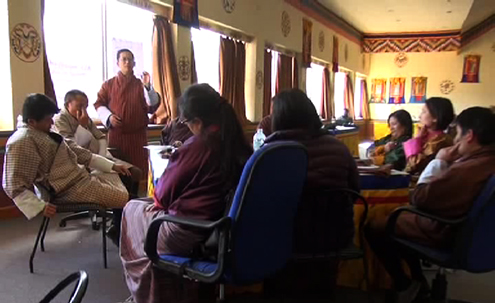 For Bhutan to be able to be fully equipped to combat Ebola, the country would require Nu.52.08 M. However, Bhutan has been able to mobilise only Nu.1.2 M for the first phase.
For Bhutan to be able to be fully equipped to combat Ebola, the country would require Nu.52.08 M. However, Bhutan has been able to mobilise only Nu.1.2 M for the first phase.
The country has also been able to achieve 58 percent of the international health regulation that are required to fight and contain the disease.
“Whether Bhutan sees Ebola cases or not, it is important is to be ready,” said the Chief Programme Officer of Communicable Diseases Division under health ministry, Dr Karma Lhazeen.
After Ebola was declared as a public health emergency by the WHO is August, last year, 14,000 passengers have been screened at the Paro International Airport. They also have to fill Ebola screening form.
During a media sensitization workshop held in Paro last week, the Chief Programme Officer said it is vital to have all the core capacities required for international health regulations in place to prevent, detect and to respond, during public health emergencies.
“The most important thing is the coordination among the different sectors and having good communication mechanism so that we know who to contact, how and where to mobilize the funds.” Dr Karma Lhazeen said surveillance and communication mechanism have to be in place for such emergencies.
So far, 15 laboratory personnel have been trained on personal protective equipment, sample collection and shipment of Ebola cases. Forty health officials and 200 airport staff have also been sensitized on Ebola with the technical support and guidelines provided by the WHO.






